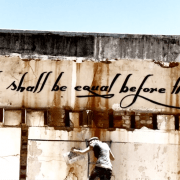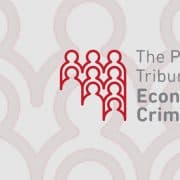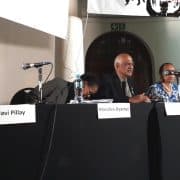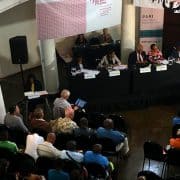|
Getting your Trinity Audio player ready...
|
The man who took the meaning of ‘teflon’ to a new level is in court this week in what some are calling his last chance to avoid prosecution. Former president Jacob Zuma has been evading corruption and racketeering charges for 10 years, and so far all attempts to make the charges stick have been unsuccessful.
Zuma seems to have had plenty of assistance in this – including former National Prosecuting Authority (NPA) heads Mokotedi Mpshe and Shaun Abrahams. But many of these players are no longer in the picture, and this week the Pietermaritzburg High Court sits for four days to hear Zuma’s arguments for a permanent stay of prosecution.
The charges relate to events that happened during South Africa’s controversial arms deal of some twenty years ago. Those against Zuma include one of racketeering, one of money laundering, two of corruption and 12 of fraud, and are connected to 783 dubious transactions Zuma allegedly received in connection with the arms deal.
After a court appearance in June last year Zuma told his supporters who had gathered outside: “We will not dispute the case if it does indeed make it in court.”
This remains to be seen, but it is for the court to decide Zuma’s fate – for once and for all, we hope.
His co-accused in the matter, French arms company Thales Group – known at the time of the arms deal as Thomson CSF – will also appear as it faces one count of racketeering, two counts of corruption and one of money laundering.
Bribery and corruption
Zuma is alleged to have received bribes from Thales through his former financial advisor, Schabir Shaik, who was prosecuted for his part in the dodgy dealings and sentenced to 15 years imprisonment in June 2005. Shaik appealed to the Supreme Court, but failed in his bid on 6 November 2006 and was incarcerated that same month.
After a couple of failed appeals in between, Shaik was released on parole on 3 March 2009, supposedly for medical reasons. He had served less than two and a half years of his sentence.
As a result of his alleged involvement in the Shaik matter, Zuma, who was deputy president at the time, was fired by then president Thabo Mbeki on 14 June 2005. He made a comeback in 2007 at the ANC’s 52nd national conference in Polokwane, trouncing Mbeki to take over as party president. The charges were served on him by the now-defunct Scorpions soon afterwards.
Zuma was sworn in South African president in 2009 and the rest, as they say, is history. He was not prosecuted alongside Shaik and now, as his day in court finally looms, his lawyers have brought three arguments to the bench:
- the long delays in getting the case to trial, bearing in mind that more than a decade has elapsed since the case against him was initiated;
- a political conspiracy lies at the heart of the NPA’s determination to prosecute Mr Zuma and;
- pre-trial irregularities including unlawful spying on Zuma, as was claimed in the leaked Brown Moles report back in 2006 – a claim that has been denied by former NPA head Vusi Pikoli.
However, on point one at least, Zuma’s own legal team has contributed to the situation, with its now notorious ‘Stalingrad’ tactics – and is now shamelessly and disingenuously trying to put the blame on prosecutors.
Meanwhile, Thales argues, in its court papers, that a permanent stay of prosecution against it would be “just and equitable constitutional relief”. The company won a tender in the arms procurement programme to supply combat systems for four navy frigates. Its share of the spoils was worth around R2.6-billion.
Thales issued a statement yesterday in which it said: “Bearing in mind the very long delay of this procedure – through no fault of Thales at all – together with a range of factors beyond its control, Thales believes it cannot obtain a fair trial, as it is entitled to under the South-African Constitution and international law.”
The company also denied having any knowledge of any of its employees having been involved in the darker side of the arms deal.
Ducking and diving
In December 2007, a week after his election as ANC president, Zuma was served with papers to appear in court to face the charges. The date was set down for 14 August 2008.
But presiding judge Chris Nicholson ruled in September that Mbeki had interfered in the previous case against Zuma. Nicholson threw the case out, paving the way for Zuma to become South African president. He was sworn in on 9 May 2009.
However, Nicholson’s judgment had been scornfully set aside by the Supreme Court of Appeal (SCA) in January that same year, with the five-member SCA bench unanimously agreeing that Nicholson was wrong. The charges were thus reinstated but proved no obstacle to Zuma’s ascendancy.
On 6 April 2009 – a month before the inauguration ceremony – the NPA dropped all charges against Zuma, when the spy tape allegations came to light. Then NPA head Mokotedi Mpshe had listened for the first time to the spy tapes and was so disturbed by what he said he heard – evidence of a plot against Zuma by then Scorpions head Leonard McCarthy and the first NPA head Bulelani Ngcuka – that he withdrew the charges against Zuma. Mpshe’s action triggered a court application by the DA, launched a week later, for a judicial review of the decision – they would be waiting a long time for a judgment.
Abrahams announced on 16 March 2018 that the charges against Zuma would be reinstated, just weeks before the North Gauteng High Court ruled that Mpshe’s decision to drop the charges was irrational. Mpshe had cited political interference in the investigation and the conspiracy against Zuma as his reason for the charges being dropped.
In early 2017 Pretoria lawyer and arms deal consultant Ajay Sooklal approached the North Gauteng High Court with claims that Zuma tried to withhold certain information from the arms deal, or Seriti Commission. The information related to a cash gift from Thales, a trip to Paris in 2007 for the Rugby World Cup semi-final, and five-star hotel stays and designer clothes courtesy of the company. Sooklal’s papers were filed in support of the Corruption Watch / Right2Kknow application to have the findings of the commission – that there was no evidence of corruption – reviewed and set aside.








